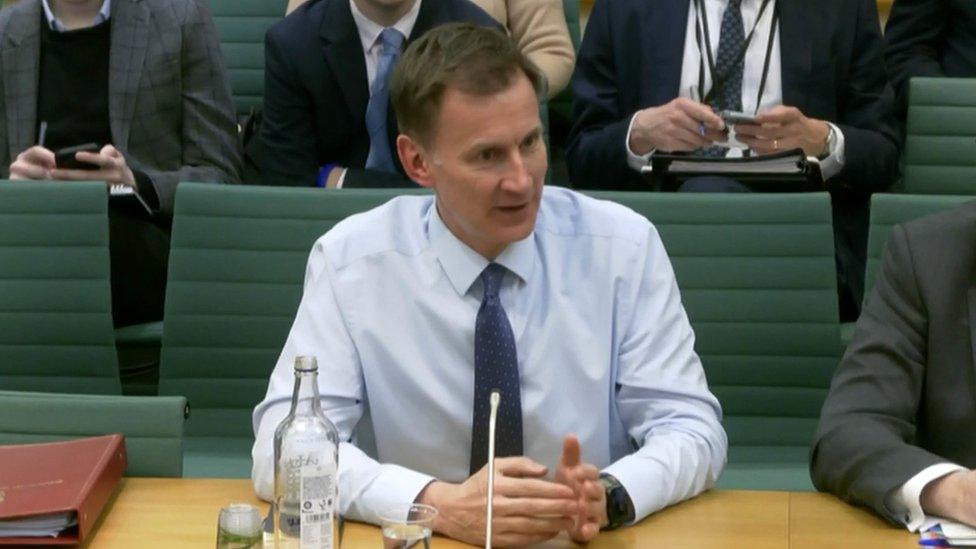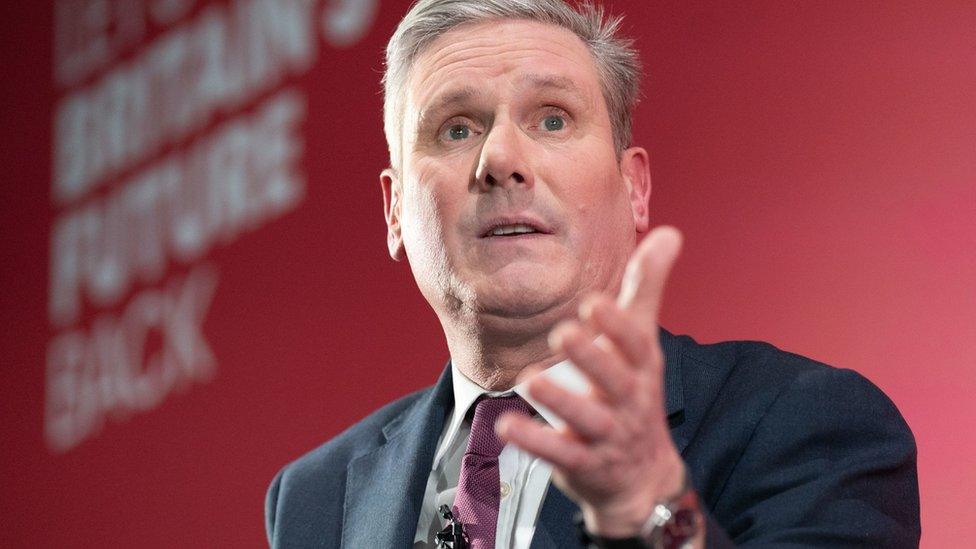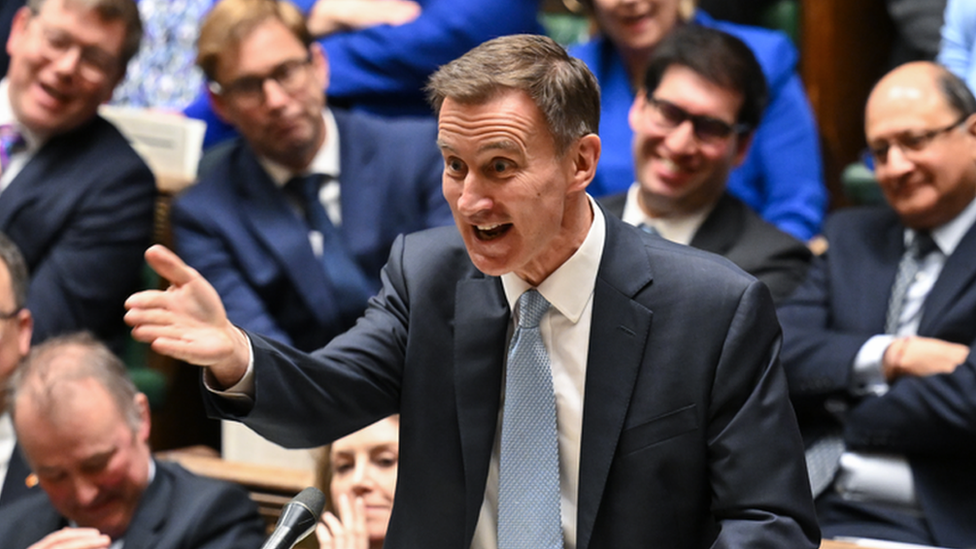National Insurance will last for some time - Jeremy Hunt
- Published

Ending National Insurance Contributions (NICs) will not happen in the next parliament, Jeremy Hunt has acknowledged.
In his Budget last week, the chancellor announced a 2p cut in the NICs rate from 6 April, adding that his eventual aim was to scrap it altogether.
But answering questions from MPs on the Treasury committee, he made clear this was a "long-term ambition".
Labour has said getting rid of the tax would blow a £46bn hole in funding for the state pension and the NHS.
The Conservatives have argued that National Insurance, which is paid by workers, is a double tax on work, and in the Budget Mr Hunt offered the prospect of a simpler tax system.
However, on Wednesday, he told the cross-party committee: "This is going to be the work of many Parliaments."
The chancellor said he could not give a timescale for scrapping the tax because it would depend on the pace of economic growth.
He pledged it would not be funded by borrowing or by cuts to public services.
Speaking earlier during Prime Minister's Questions, Labour leader Sir Keir Starmer accused Prime Minister Rishi Sunak of offering voters an "unfunded £46 billion promise to scrap National Insurance", and asked him if it would be paid for by cuts to state pensions or cuts to the NHS.
Sir Keir suggested it "could be 2022 all over again", seeking to draw comparisons with the disastrous mini-budget during Liz Truss's short-lived premiership.
"They tried that under the last administration and everybody else is paying the price. All we need now is an especially hardy lettuce," he told MPs - referencing a vegetable deemed to have outlasted Ms Truss' time in office.
Labour has also warned that a plan to scrap the tax will create uncertainty about people's entitlement to the state pension because this is based on their NICs during their working life.
But Mr Hunt accused the opposition of scaremongering, saying the money raised by National Insurance did not determine how much went into the state pension or the NHS.
"I'm just wondering how it is that Labour MPs can square with their conscience voting in favour of a cut in national insurance at the same time as they're trying to scare everyone that it will mean cuts in funding for the NHS," he added.
The 2p cut in NICS has cleared its first Commons hurdle, with MPs voting by 304 to 43, a majority of 261, to back the measure. An SNP amendment designed to block it, warning that it would lead to cuts in public services, was defeated by 300 votes to 44.
On Tuesday, Richard Hughes, the head of the independent Office for Budget Responsibility, told the Treasury committee "we don't know" how the government would make its spending plans add up, because of a lack of detail after March 2025.
Asked why he could not provide more certainty about this, Mr Hunt said his Budget had spelled out "what our approach to the spending assumption will be in a way that is designed to avoid austerity-style cuts in public services".
He argued that efficiency savings in public services would plug the gap of around £20bn that independent think tank the Institute for Fiscal Studies has predicted will have to be cut to ensure the government meets its rule to have debt falling in five years' time.
Challenged about a lack of policies on housing in his speech last week, Mr Hunt said it was not "the right time".
"This Budget I would have liked to have had some measures that help people get on the housing ladder", he told MPs..
"But it is difficult to do that unless you are absolutely confident that property prices are back on the up, because otherwise you are encouraging people to get on to the housing ladder with the prospect of house prices falling and therefore then falling into negative equity."
- Published13 March 2024

- Published7 March 2024

